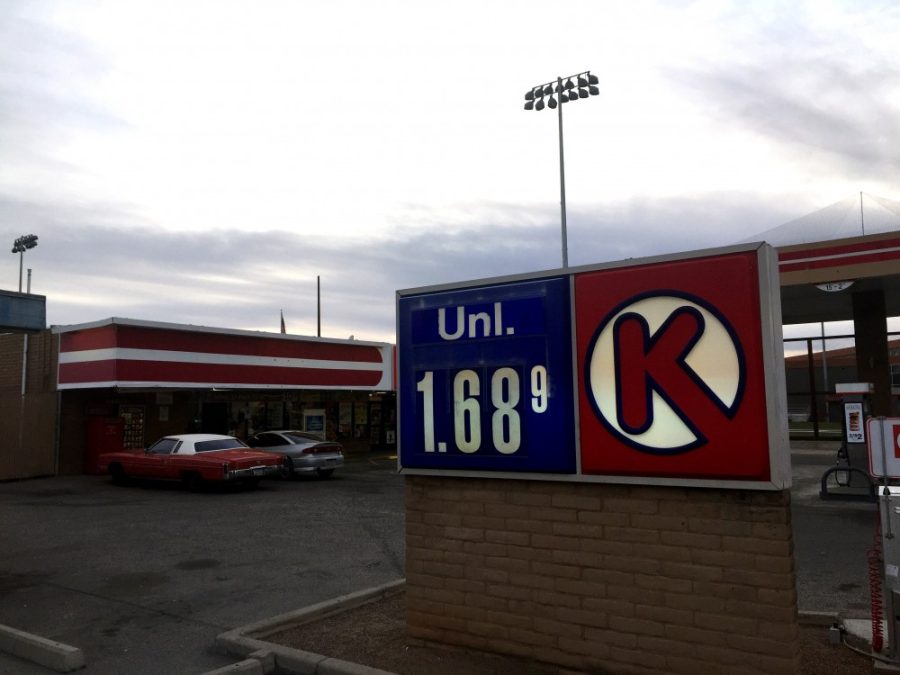According to a weekly gasoline price survey by the U.S. Energy Information Administration, the average price of gasoline fell below $2 a gallon on Jan. 11 for the first time since March 23, 2009. Since this new low, the average regular gasoline price was $1.996.
As of Jan. 18, however, the prices have continued to drop, reaching a low of $1.914. This price is approximately $0.152 lower than it was just last year. The greatest drop in weekly prices occurred in the Midwest, while the largest yearly drop occurred in the central Atlantic region of the East Coast.
There were also similar decreases in U.S. On-Highway diesel fuel prices. From Jan. 11 to Jan. 18, the price of diesel fuel dropped $0.065, reaching an average price of $2.112 per gallon. This price is $0.821 dollars lower than it was one year ago.
One of the primary reasons for this decreasing gasoline price is the falling cost of crude oil.
According to Derek Lemoine, an assistant professor of economics at the Eller College of Management, the reasons for this dropping crude oil price are the U.S.’s increased role in oil production and a slowdown in China’s economic production.
While the reasons for the drop in oil and, subsequently, gasoline prices, can be explained, it is harder to predict the effects of the low prices.
With regards to the U.S., Gautam Gowrisankaran, Arizona public service professor of economics and the director of economics graduate studies at Eller College, believes the prices will have a relatively counterbalanced effect on the economy.
“I think that the effect of dropping oil prices for the United States is going to be neutral, it’s going to balance out,” Gowrisankaran said. “There will be less oil jobs and a drop of revenue [in the oil industry] but also a counterbalance in new spending.”
Additionally, Gowrisankaran mentioned the possible international and environmental effects from long-term results of the low oil prices
“If prices stay low, you’ll see a lot of drying up of oil infrastructure. Unless the United States puts a carbon tax, you’ll see a lot more gas-guzzling cars,” Gowrisankaran said. “[There will be] a lot of geopolitical effects in countries in the Middle East as they lose influence in oil.”
Lemoine echoed Gowrisankaran’s concerns with the environmental impact of low crude oil prices.
“When the price of oil falls, we burn more of it so our emissions increase,” Lemione said.
Lemoine also provided insight on the geopolitical effects of the low oil prices. Countries such as Canada and Saudi Arabia, whose economies rely on oil exports, will be more impacted by the low oil prices.
“The Russian and Saudi Arabian budgets, including things like military, look very differently than they did five years ago,” Lemoine said. “These places need a high oil price to keep spending in the way they planned.”
Even with the potential ramifications of fluctuating gas and oil prices, this trend is natural economic behavior.
“Neither a low or high oil price is necessarily bad,” Lemoine said. “It’s just prices working the way they should, it’s actually good that prices move.”
Follow Connor on Twitter.









